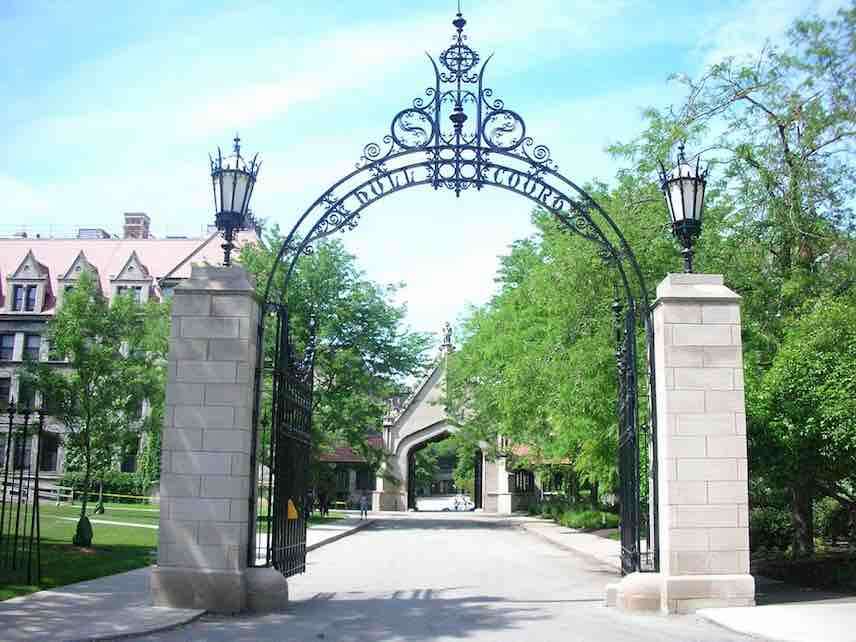Activists Disrupt Law Professor's Talk at the University of Chicago
"This is not a terribly effective tactic of persuasion, loudly yelling so students can't hear."

George Mason University Law Professor Eugene Kontorovich attempted to deliver remarks to law students at the University of Chicago Tuesday, but was heckled by several protesters who successfully drowned him out. These activists were eventually removed by security.
Eyewitnesses told Reason that the hecklers were not enrolled at Chicago, though one student did attempt to record Kontrovich on a cell phone, and was silently involved in the protest.
Kontrovich, an alumni of the law school, told Reason he had been invited by a student group to discuss the First Amendment as it pertains to laws that target the Boycott, Divestment, and Sanctions (BDS) movement, which calls for direct action to oppose Israel's treatment of the Palestinians. A group of about five pro-Palestinian activists showed up for his talk and shouted over him as best they could, making it very difficult for attendees to hear.
"During the first few minutes of this disruption, Professor Kontorovich could not proceed with his lecture," Seth Cohen, a student who attended the lecture, told Reason. "After about five minutes, we gathered around Professor Kontorovich, and he attempted to resume the talk. The protestors raised their voices."
Kontrovich attempted to engage the protesters, but they merely continued to shout over him.
"The principal disruption was that they kept loudly yelling and chanting," Kontrovich told Reason. "It's a shame for students who came to hear a talk about the First Amendment in a law school."
Eventually, a school administrator—Dean of Students Charles Todd—entered the classroom and tried to persuade the activists to leave. They "smiled at him and continued chanting," according to Cohen. Later, the police arrived, and then the hecklers left.
Todd sent a campuswide email Tuesday evening in which he claimed the individuals causing the disruption were non-students.
"These disrupters were issued trespass warnings and asked to leave the premises," wrote Todd. "This chanting did violate the University's policies. It is the right of any speaker invited to our campus to be heard and for all who choose to be present to hear the speaker. Moreover, it is the right of members of the audience to ask tough questions of those speakers. The heckler's veto is contrary to our principles. Protests that prevent a speaker from being heard limit the freedoms of other students to listen, engage, and learn."
Todd did not immediately respond to a request for comment.
Kontorovich came away from the event perplexed by the activists' strategy.
"This is not a terribly effective tactic of persuasion, loudly yelling so students can't hear," he said. "It's not going to convince you of the justice of anyone's cause. What's ironic is that these [protesters] are the ideological allies of the people who favor safe spaces, who say that speech that makes them uncomfortable is violence and hearing things they don't like silences them. Yet they come and make it so people can't hear things they don't like."


Show Comments (99)